What Are Long-Tail Keywords?
Long-tail keywords are highly specific search queries that tend to have relatively low search volumes.
Although users search for them less often, long-tail keywords make up a large percentage of overall searches when added together.
The phrase “long tail” was originally used to describe the phenomenon that niche products on sites like Amazon tended to account for more total sales than the top bestsellers.
As it turns out, the same thing occurs with keywords that people type into search engines.
In fact, the term “long tail” refers to the “tail” at the end of a curve.
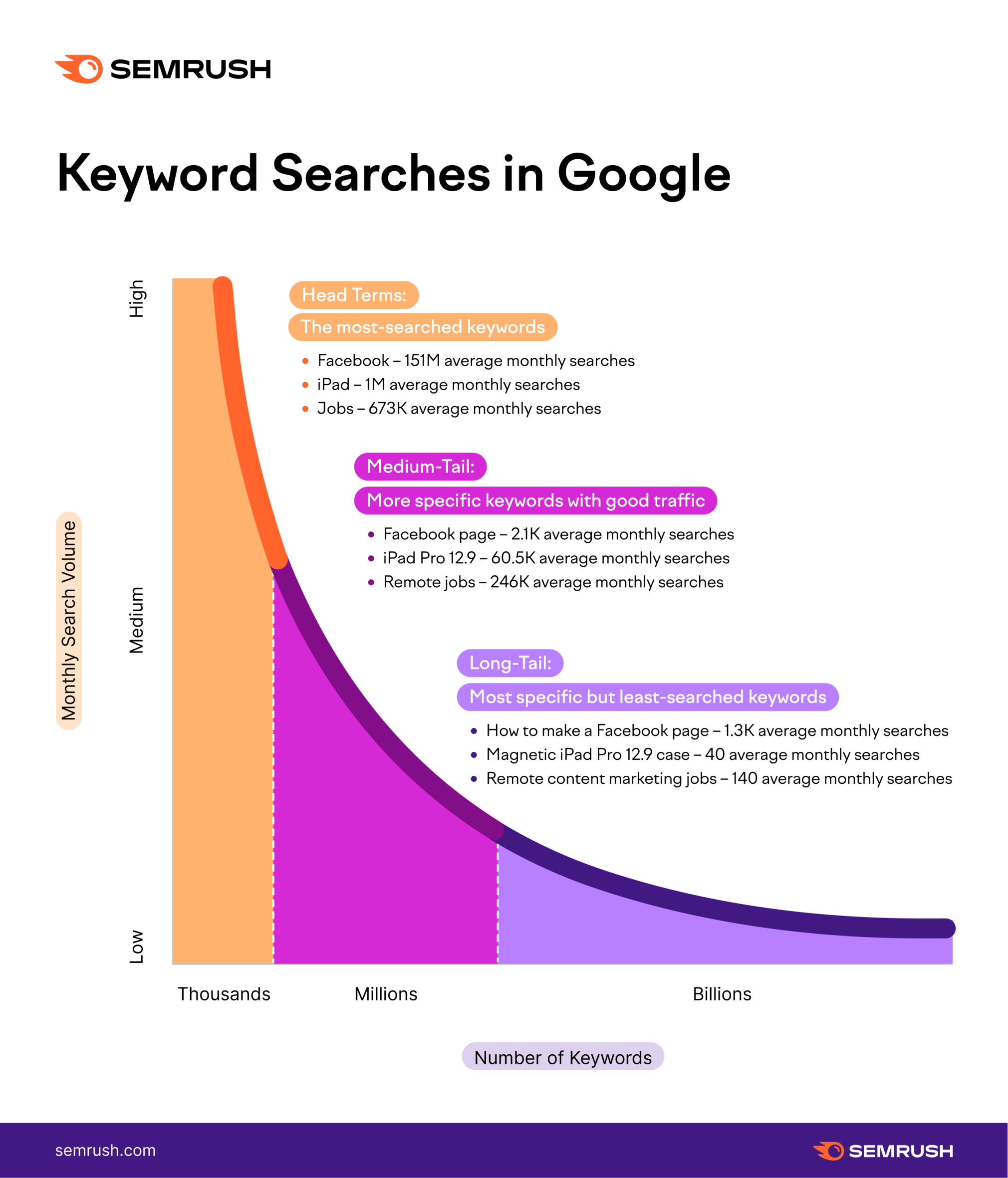
As you can see in the chart above, each individual long-tail keyword has a relatively low search volume (especially when compared to head terms.)
But in aggregate, they actually make up the vast majority of all searches performed on Google.
Long-Tail Keyword Examples
Let’s quickly take a look at examples of words that don’t qualify as long-tail keywords.
Here are examples of very broad “head terms” that aren’t long-tail keywords:
coffee filters iced coffee marketing agency marketing expertSee how these terms are short and not very specific? Those are features that keywords that aren’t long-tail terms tend to have.
Here are some examples of targeted keywords that are long-tail keywords:
homemade coffee filters make iced coffee at home content marketing for SaaS content marketing strategies for softwareSee how these keywords are long and highly specific? Those are telltale signs of long-tail keywords.
Why Are Long-Tail Keywords Important?
Easier to Rank
Popular head terms are typically very competitive. Which means it can take years to rank for that keyword with SEO (if you’re able to rank at all.)
For example, the keyword “sushi” has 2.23 billion results:
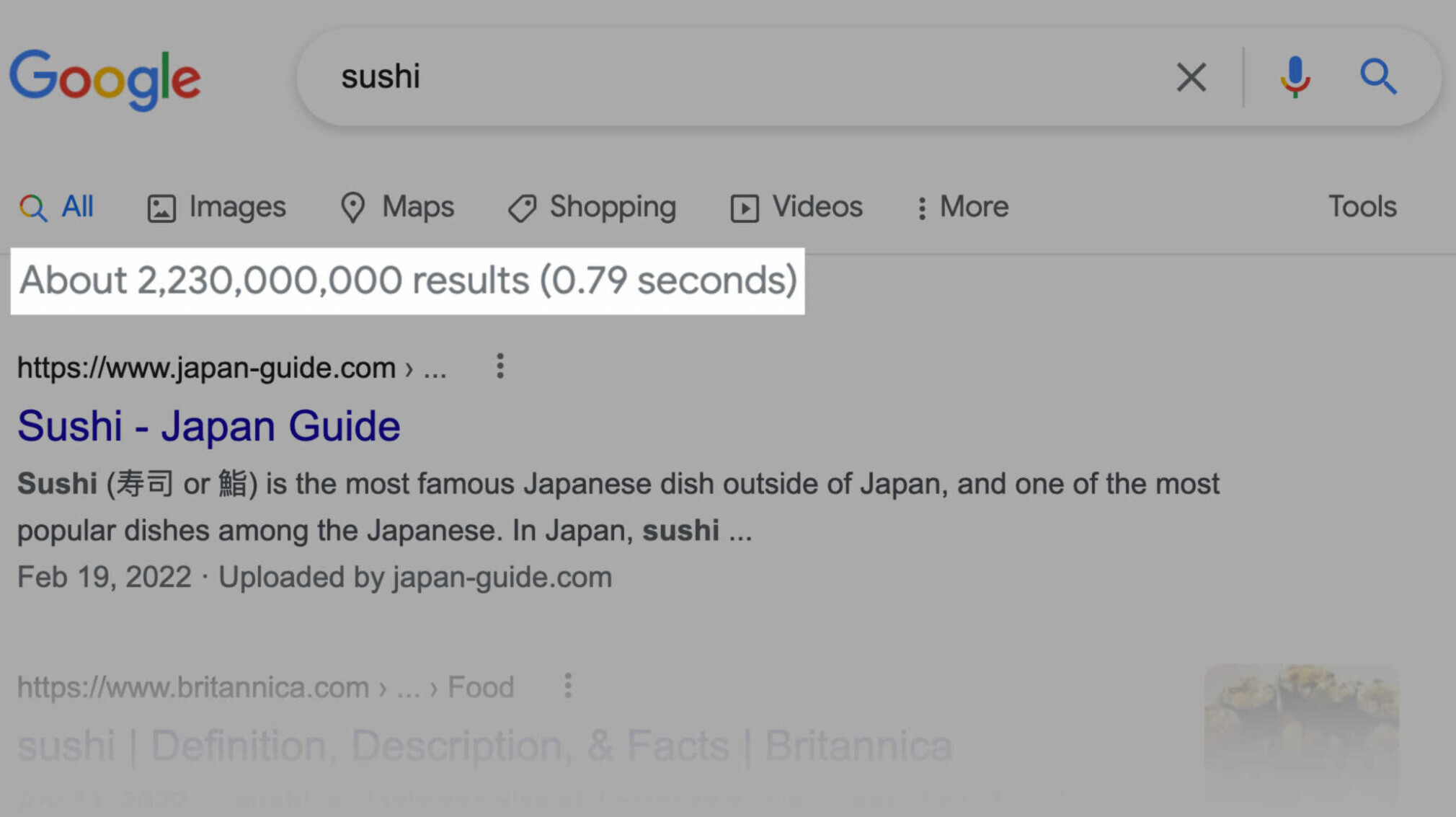
But the long-tail keyword “vegan sushi recipes” generates only 25 million search results:
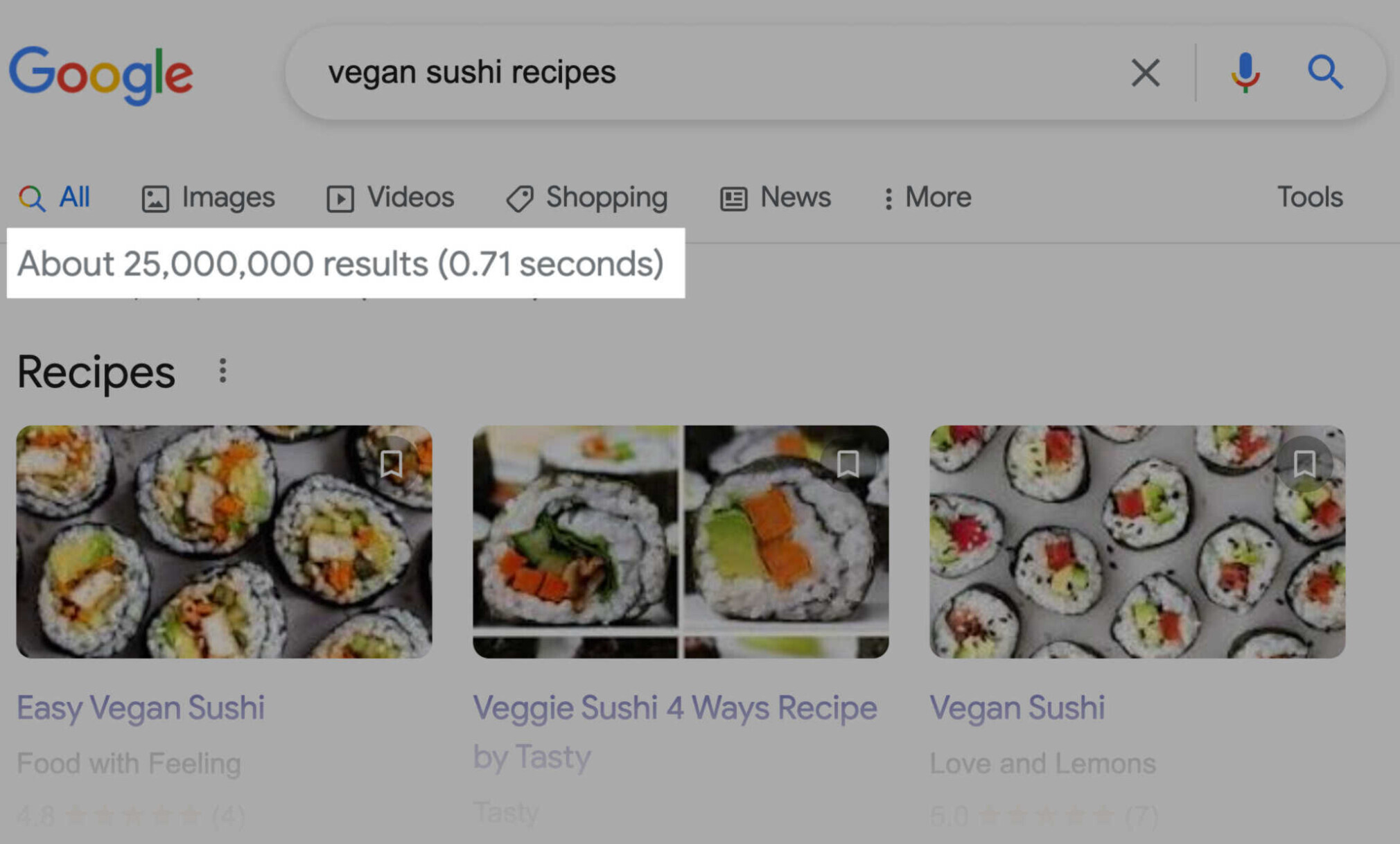
That’s 98.88% fewer sites you’ll be competing with to rank on the first page of Google.
The same thing plays out if you look at the Keyword Difficulty widget for each keyword in Semrush.
“Sushi” has a KD of 90%:
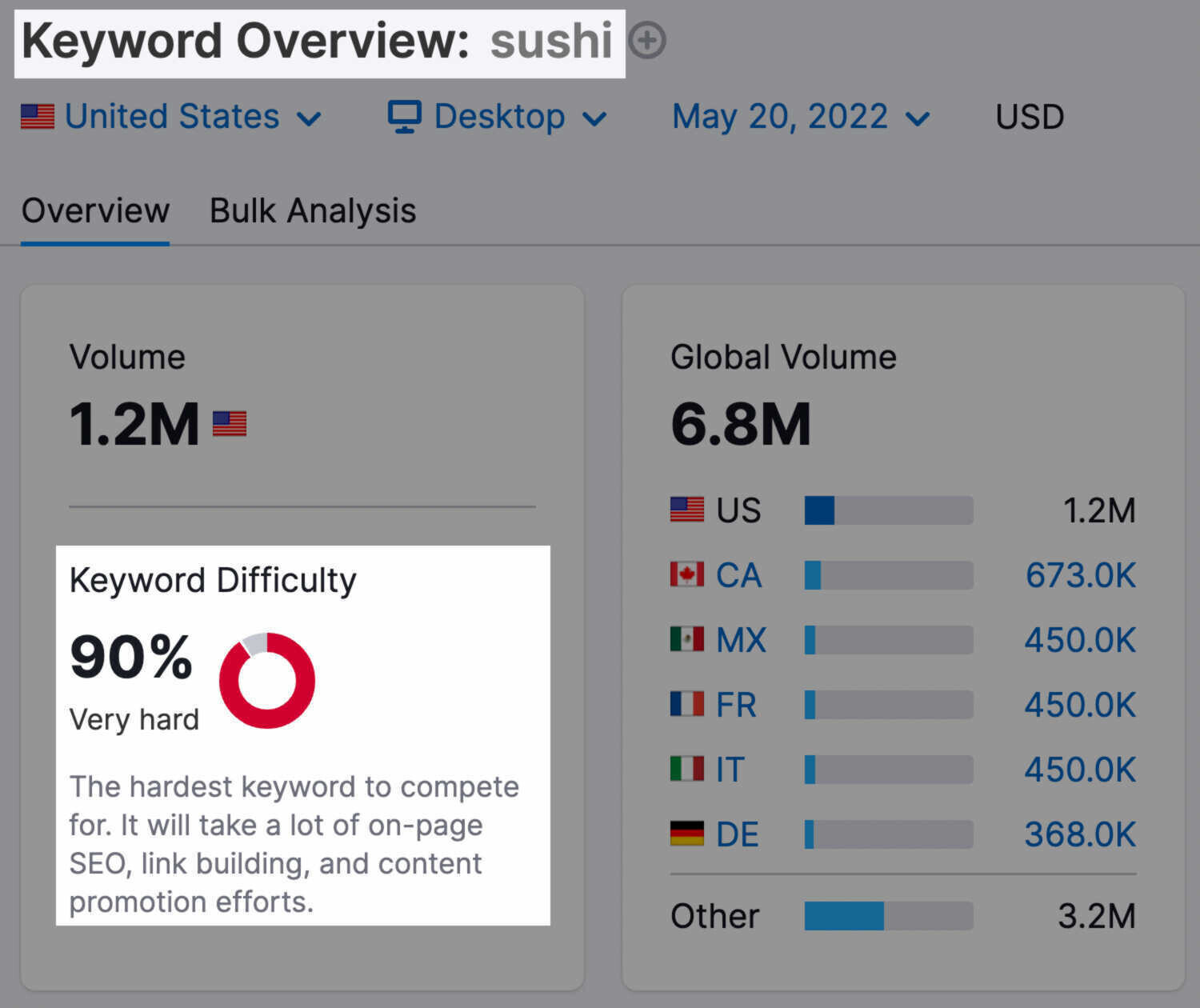
That’s pretty tough.
But “vegan sushi recipes” has a KD of only 54%:
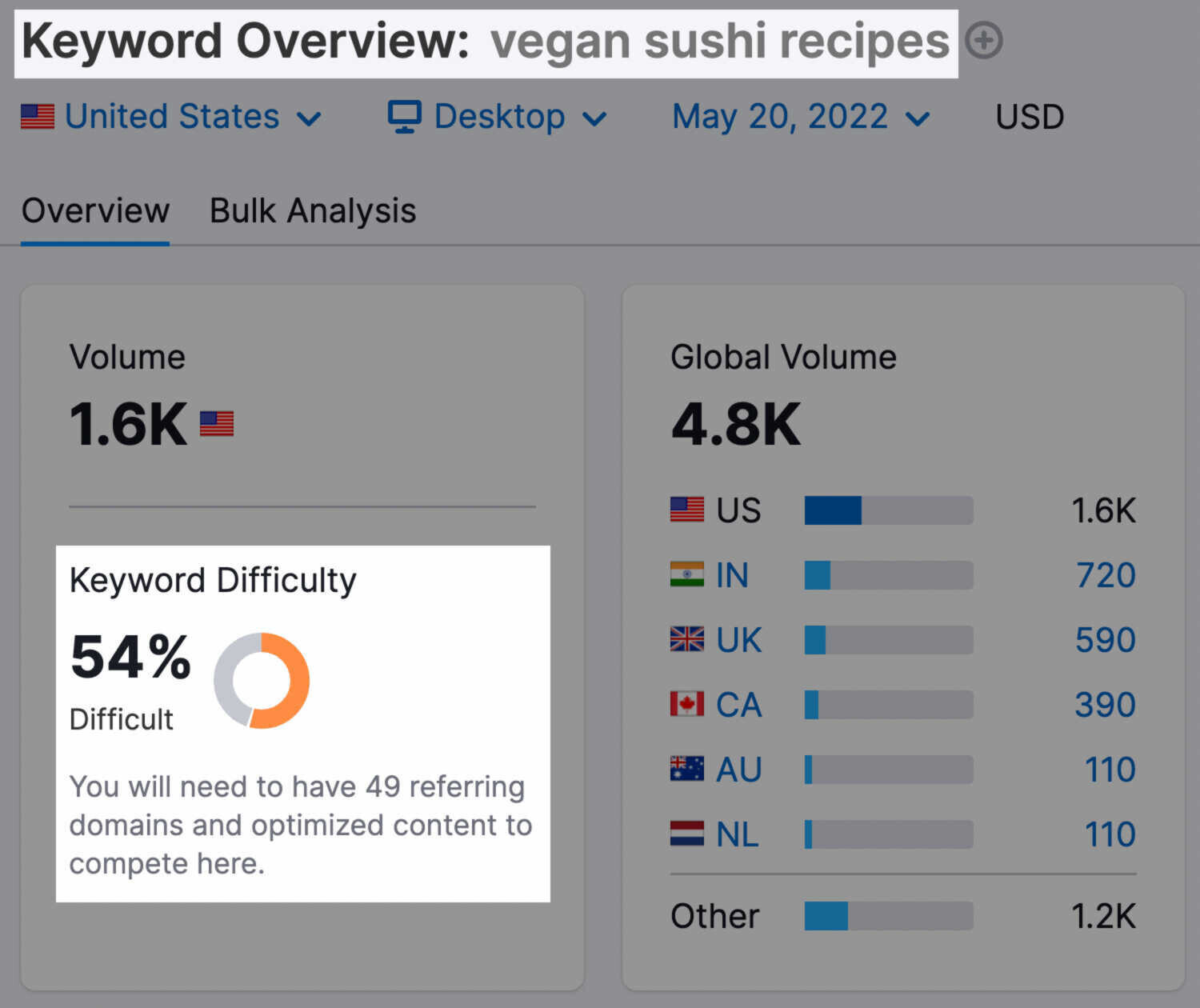
Targeted Traffic
Since long-tail keywords tend to be very specific, the person using that keyword in Google is probably close to making a purchase.
For example, take the keyword “SEO software:”
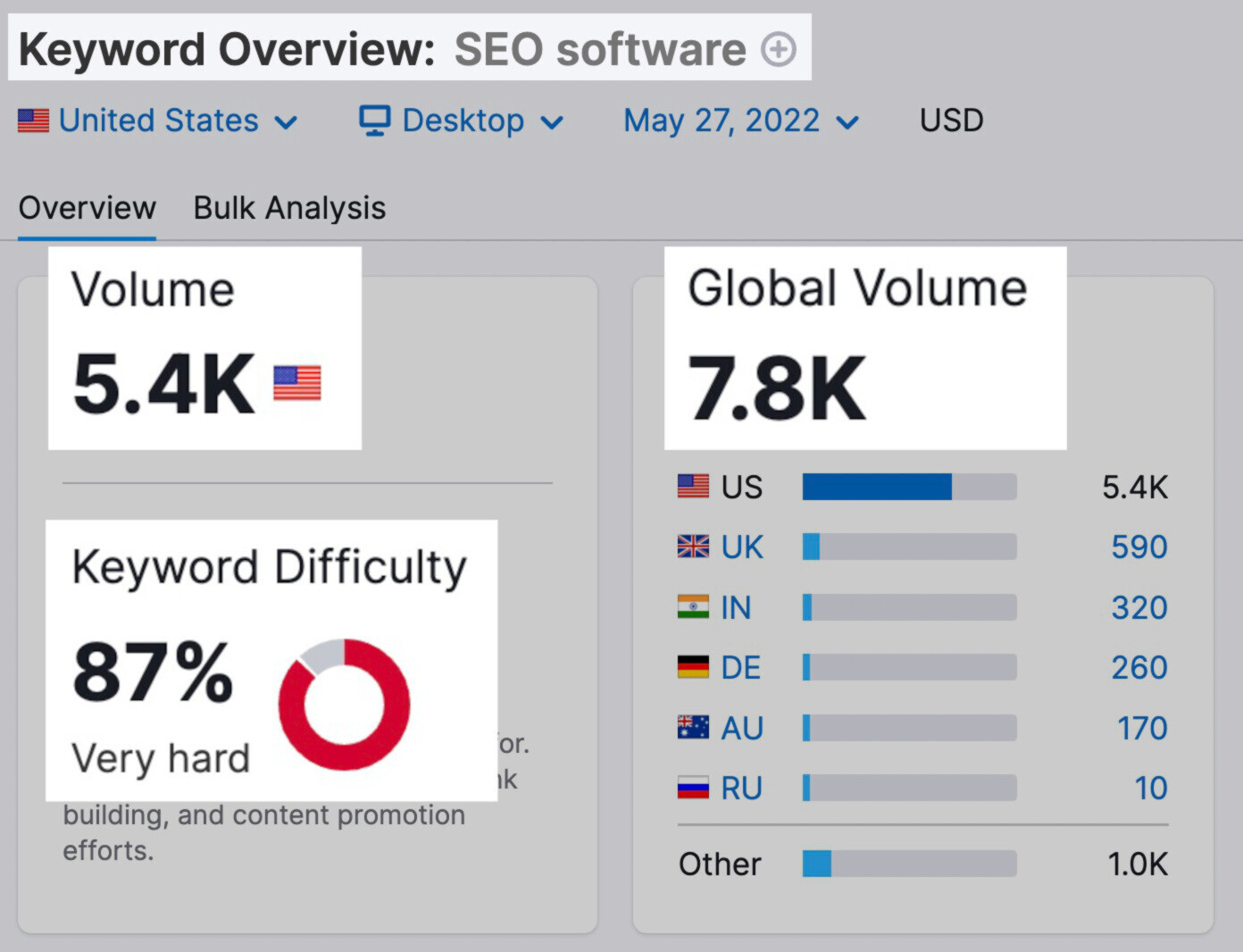
Someone searching for that term is pretty close to making a buying decision. Even if they’re still shopping around for the best software.
On the other hand, a keyword like “SEO” is super broad:
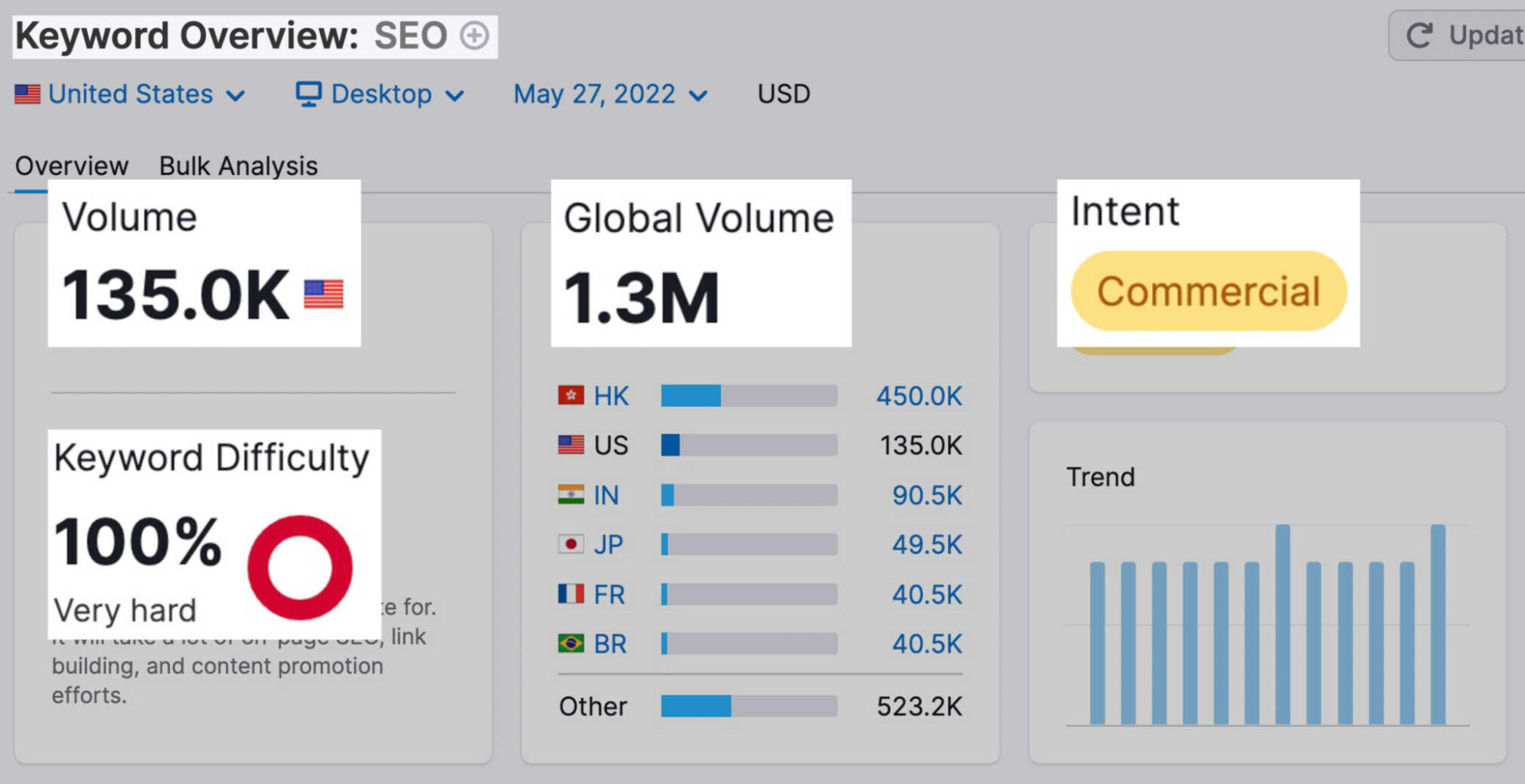
This searcher is likely doing some preliminary research about SEO in general. They may be months away from looking for software to help with their SEO strategy.
Less Expensive PPC Advertising
If you use Google Ads, long-tail keywords can also help you get more bang for your advertising buck.
Why? Many high-volume keywords have a high cost per click.
Plus, as we just pointed out, these types of broad keywords don’t even convert super well.
However, low-volume long-tail keywords are super targeted. Which means that they can have a higher conversion rate.
Plus, they can have a lower CPC. That’s a PPC win-win!
The main downside of focusing on long-tail keywords is that you need to rank for several of them to equal the amount of traffic you’d get from a single head term.
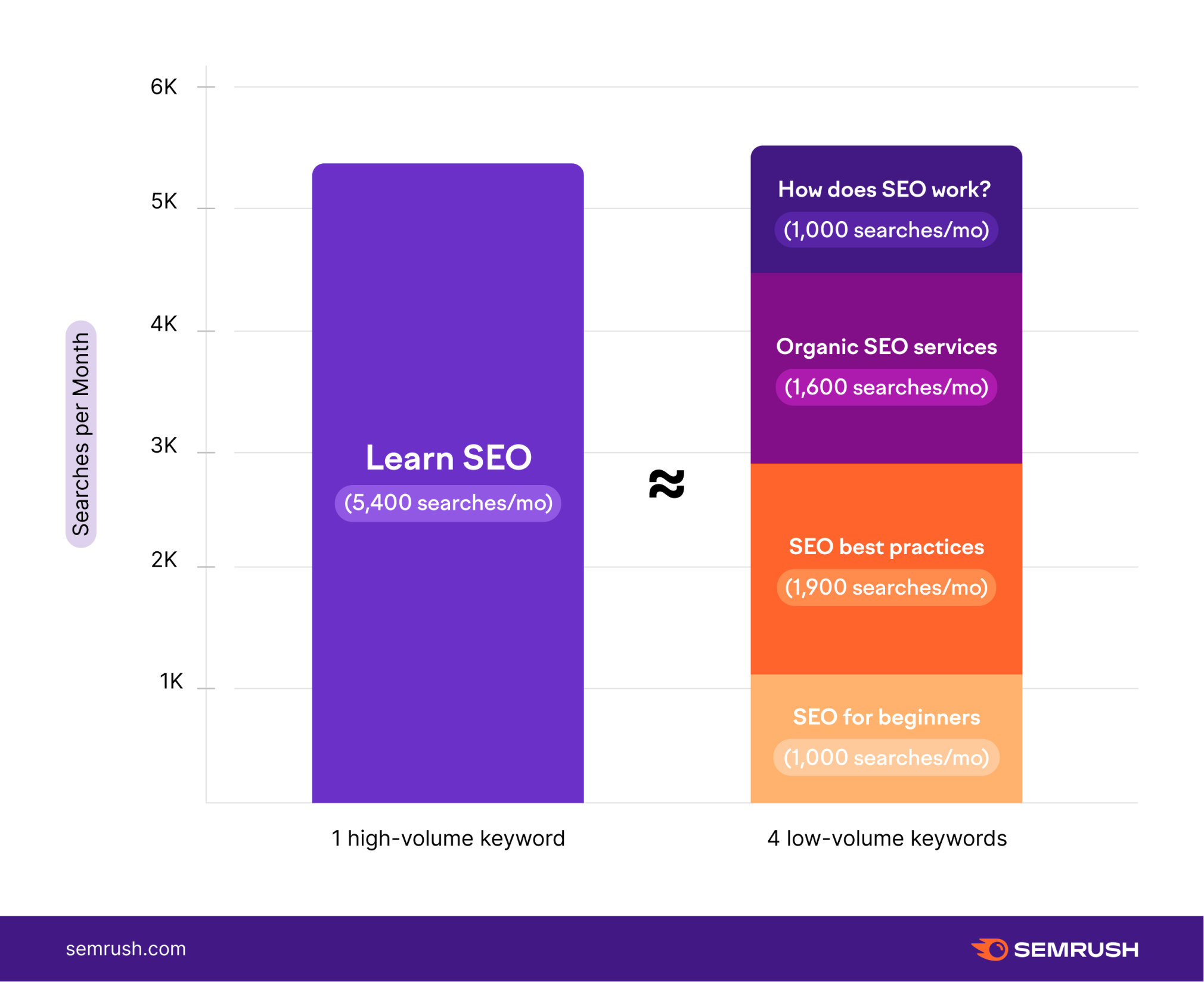
How to Find Long-Tail Keywords
Here are a few proven strategies for finding long-tail keywords for your website.
Google’s Autocomplete Feature
When you start typing into Google’s search box, it will show you a drop-down list of related terms that people search for:
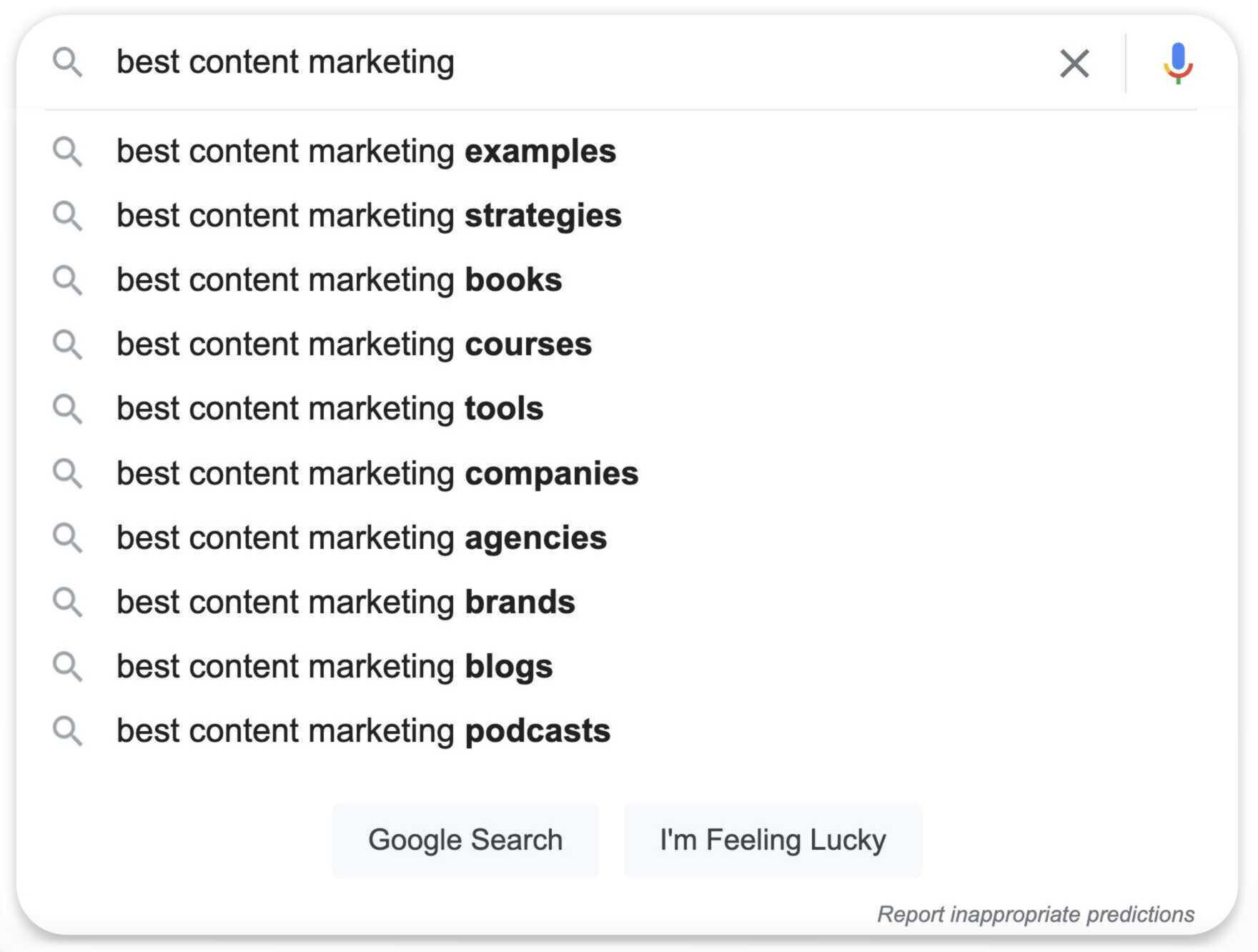
You can also add a letter after your search term to see even more suggestions.
For example, let’s say you’re looking for long-tail keywords related to content marketing. You can type something like “best content marketing p” into the search box and get the following list of suggestions:
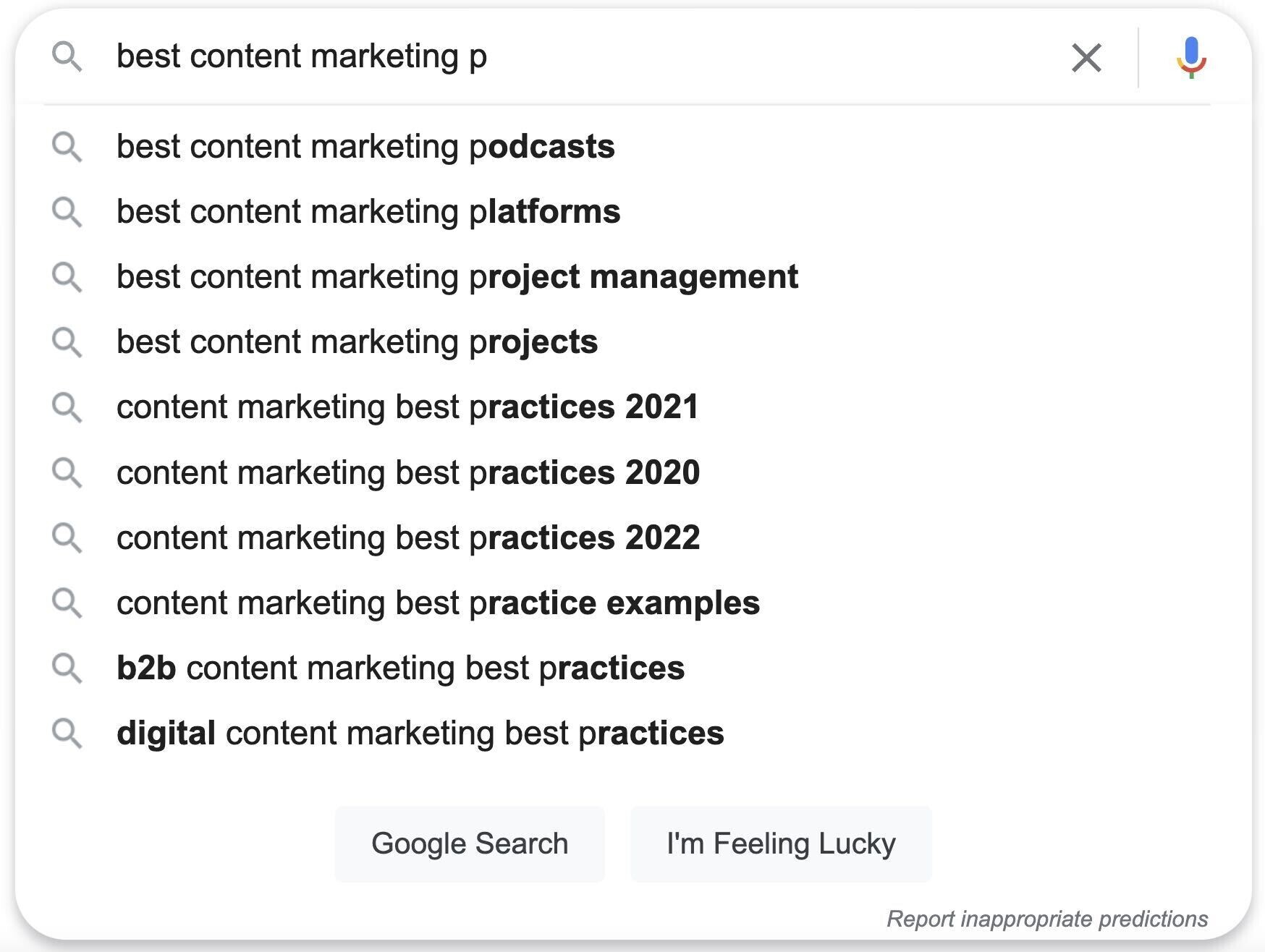
Google’s People Also Ask (PAA) Feature
Google’s “People Also Ask” feature is an excellent source of question-based keywords:
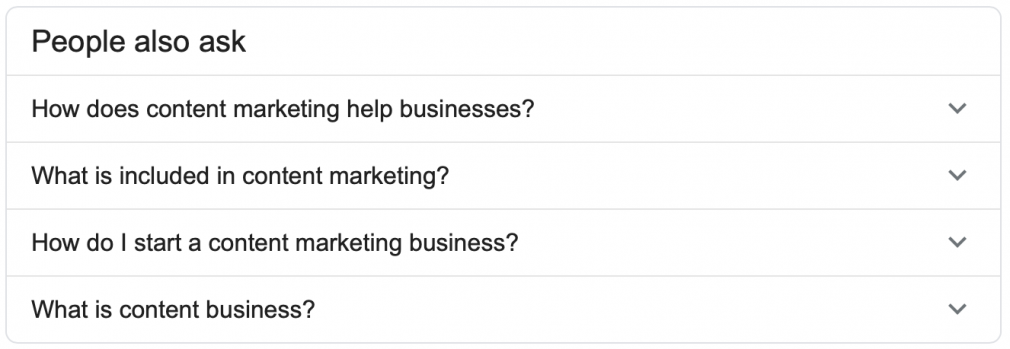
And when you click to expand on a question, Google generates even more related questions:
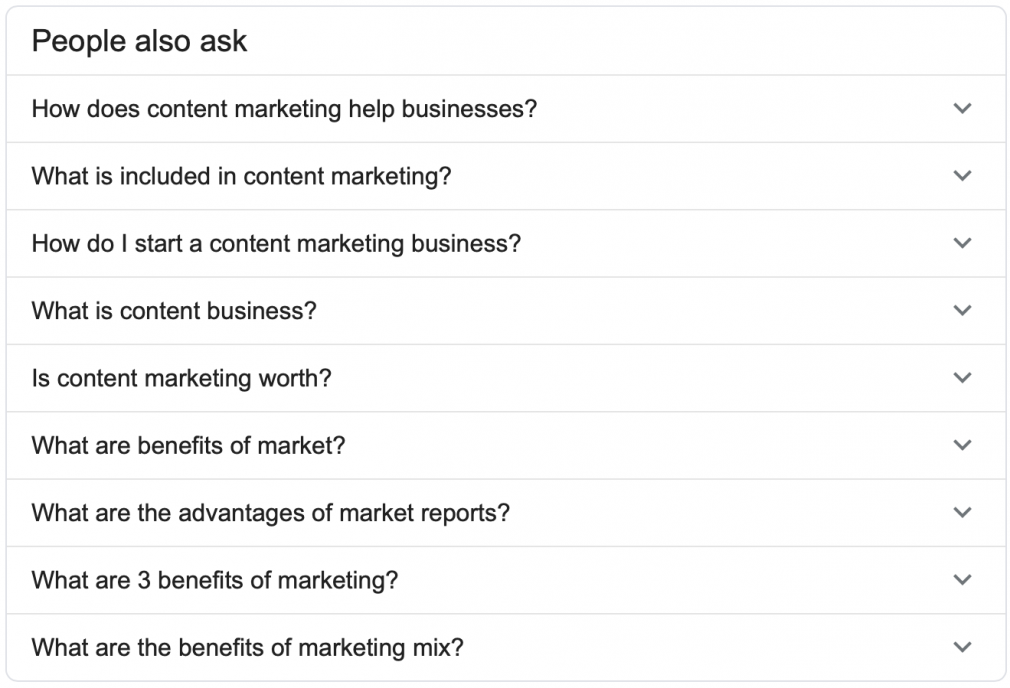
Semrush Keyword Magic Tool
The Keyword Magic Tool generates thousands of keywords in seconds.
Just enter a broad “seed keyword” into the tool:

And it will quickly find some long-tail versions of that keyword:
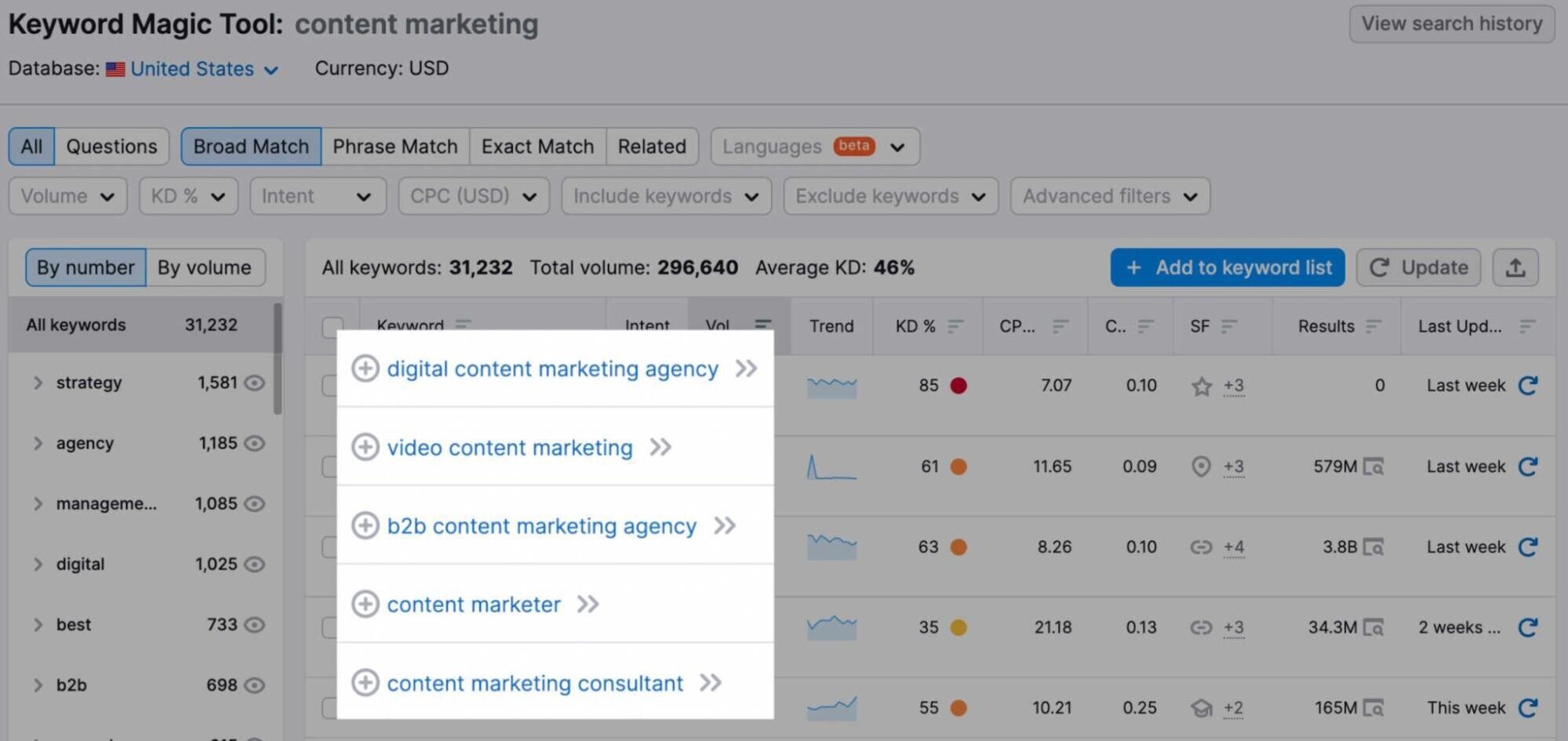
Google’s “Related Searches”
Google provides a list of eight keywords at the bottom of the first page of the search results:
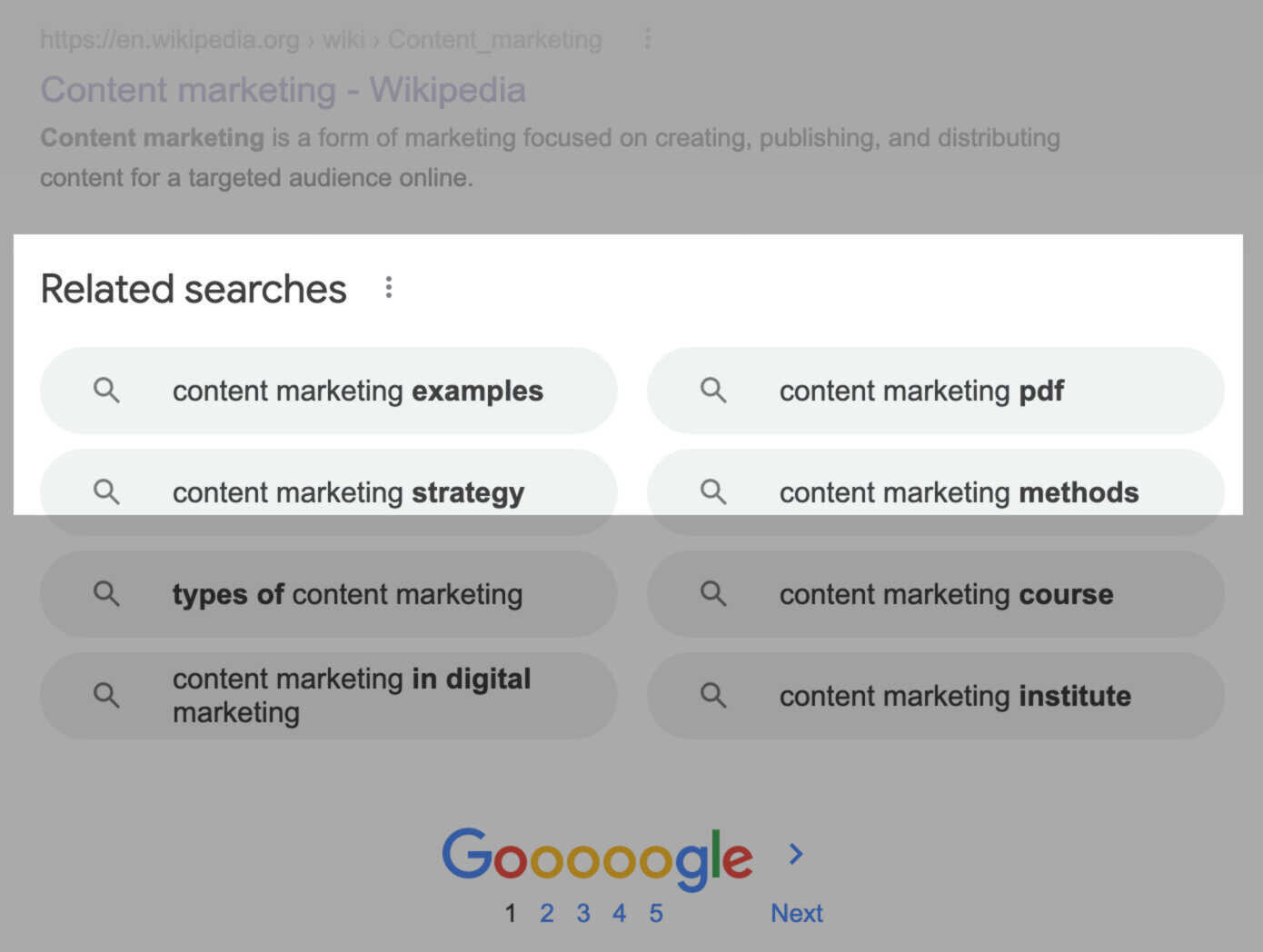
These are usually long-tail keywords closely related to the term you just searched for.
For example, here are some of the long-tail keywords that Google provides for “content marketing:”
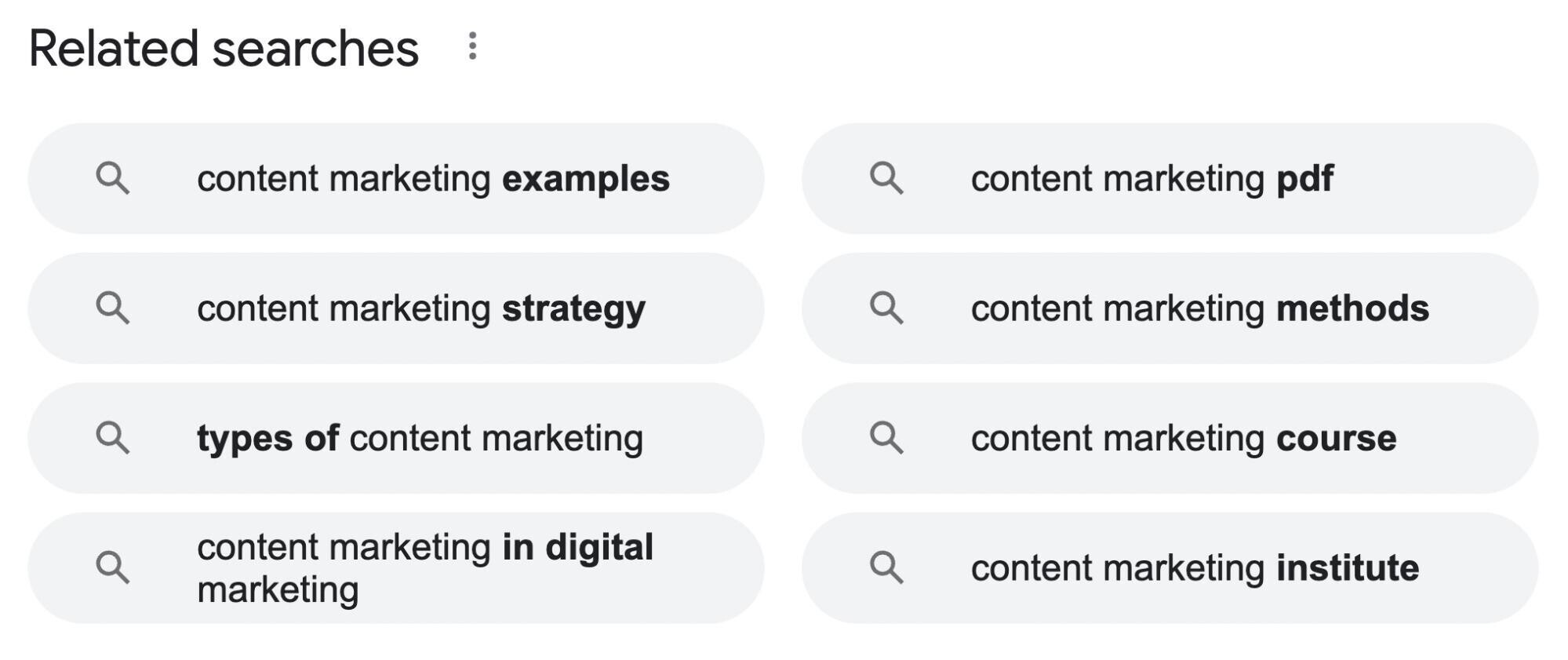
Use Your Unique Selling Proposition (USP)
An untapped strategy for finding long-tail keywords is identifying what makes your business unique.
That way, you can get your site in front of people using long-tail keywords that describe the unique thing you offer.
For example, let’s say that you sell human-grade, organic dog food.
Keywords like “human-grade organic dog food” and “human-grade dog food” would be perfect for you.
Like most long-tail keywords, these keywords aren’t going to bring in a ton of traffic.
But they’re highly related to what you sell. Which means that traffic will likely convert.
To put this strategy into practice, ask yourself these questions:
What makes your product or service unique? What kind of people need what you are offering? Why should they choose you over your competitors?Semrush Topic Research Tool
The Topic Research Tool will help you find topics closely related to a keyword that you type into it:
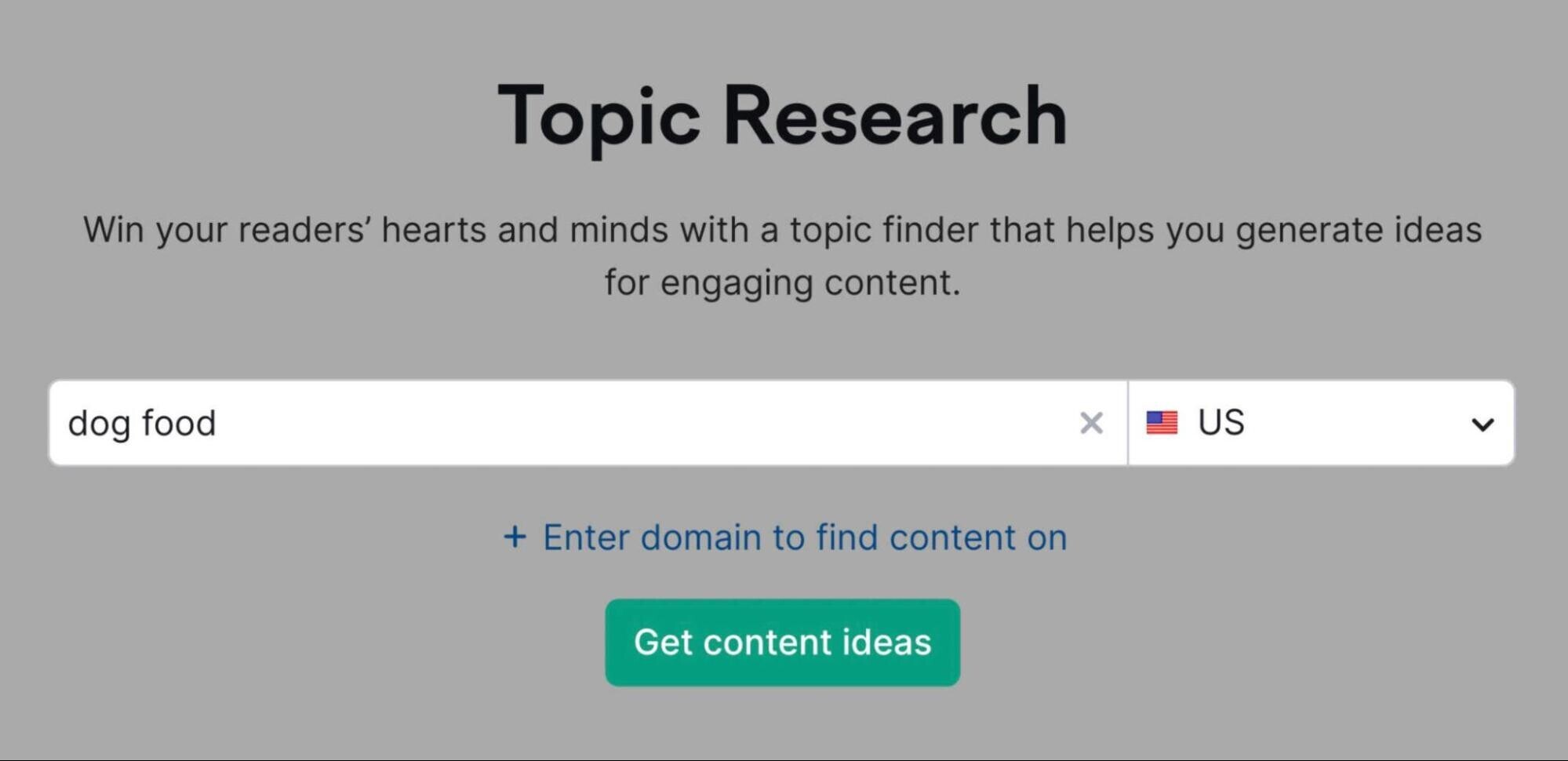
And many of these related keywords are excellent long-tail keywords.
When you click on a card, you’ll see recent headlines and questions related to your topic:
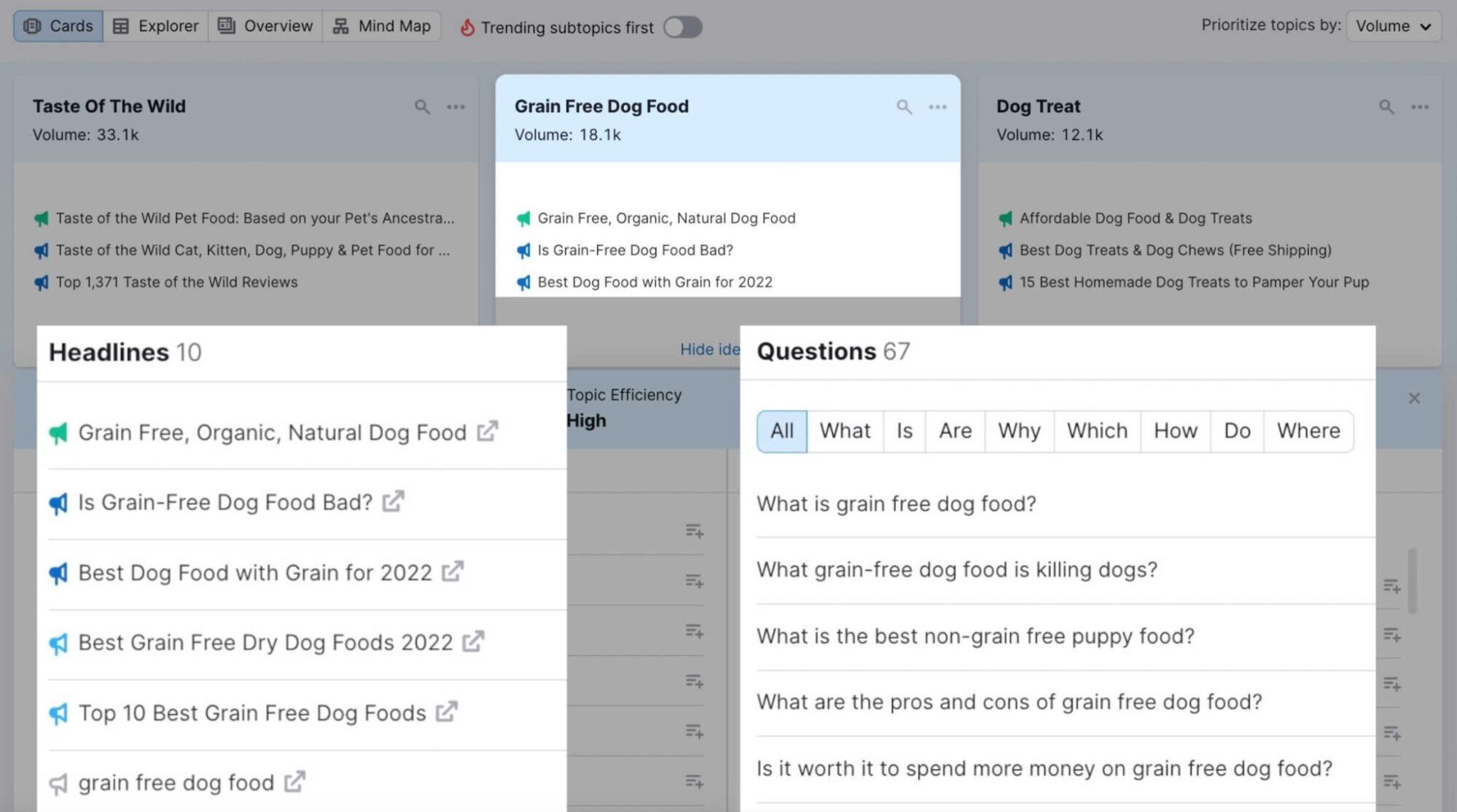
These questions can help you find untapped long-tail keyword ideas that are ideal for blog content.
Social Media and Forums
Message boards and forums like Reddit can help you find problems people struggle with. You can help solve these problems with your content.
For instance, we found a handful of solid topics by typing “content marketing” into Quora:

There are countless places to gather information from online forums, boards, or social media. Here are some other helpful guides:
How to Use Quora For Content Marketing and Keyword Research How to Use Reddit for Keyword Research to Amp Up Your Content Marketing Strategy The Ultimate Keyword Research Guide for SEOSemrush Keyword Gap Tool
The Keyword Gap Tool in Semrush can reveal keywords that your competitors rank for… but you don’t.
To use it, add your domain and up to four competitors:
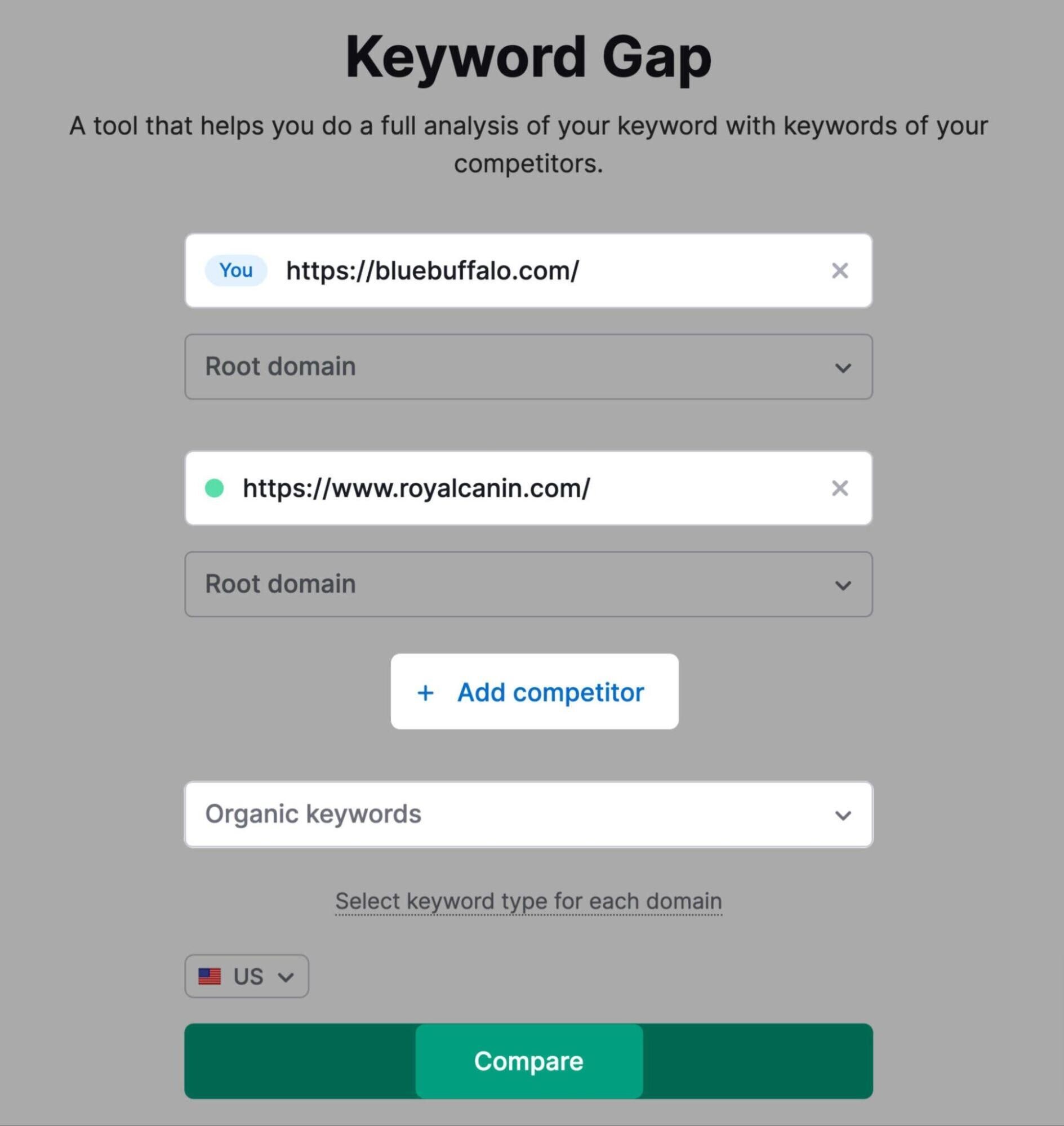
The tool will show you keywords that your competitors rank for, along with their SERP positions:
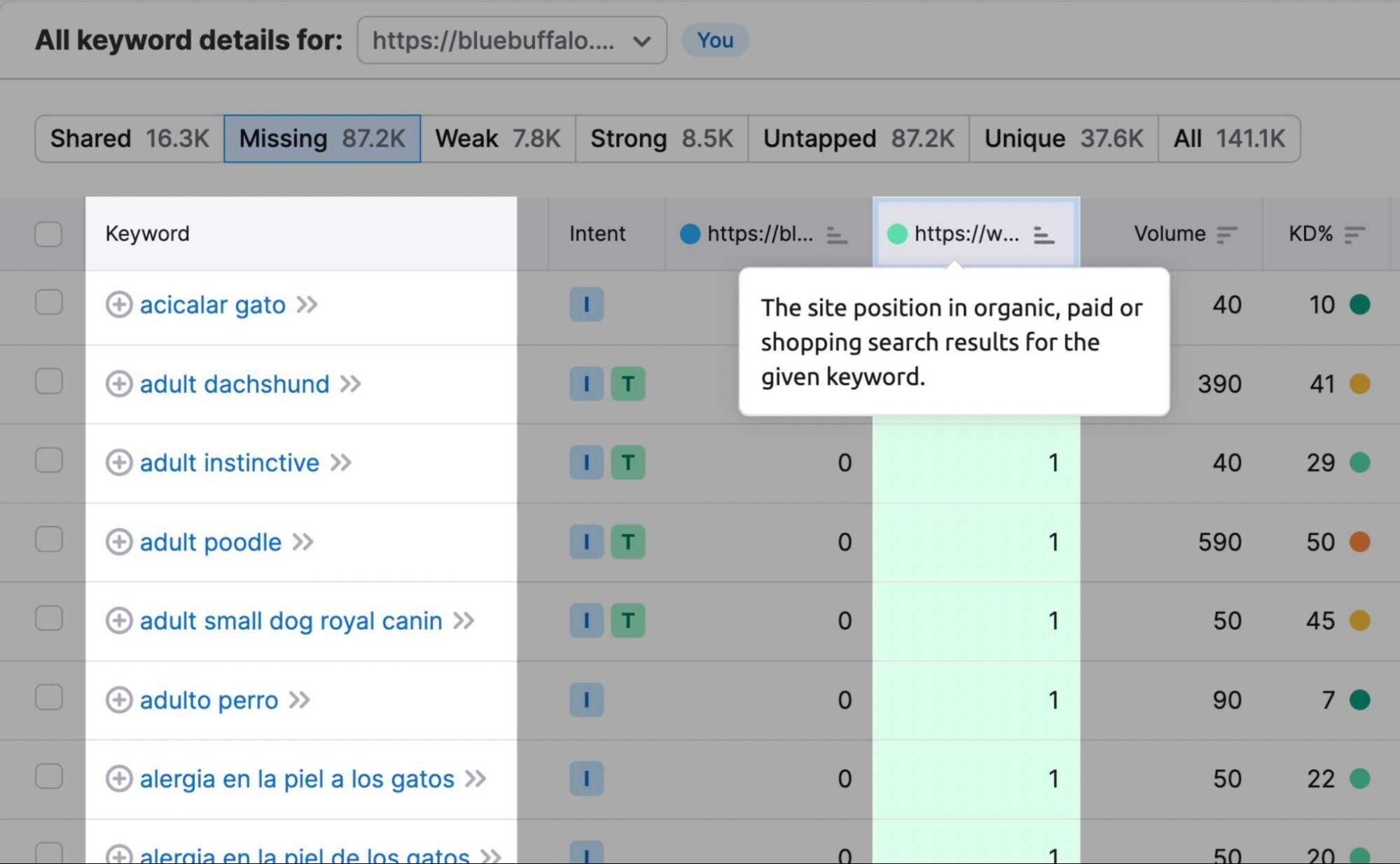
Google Ads Keyword Planner
The Google Keyword Planner is designed for PPC campaigns. That said, it’s still a helpful source of keyword ideas.
To use it, log in to your Google Ads account and head over to the Keyword Planner.
You’ll see two options: “Discover new keywords” and “Get search volume and forecasts:”
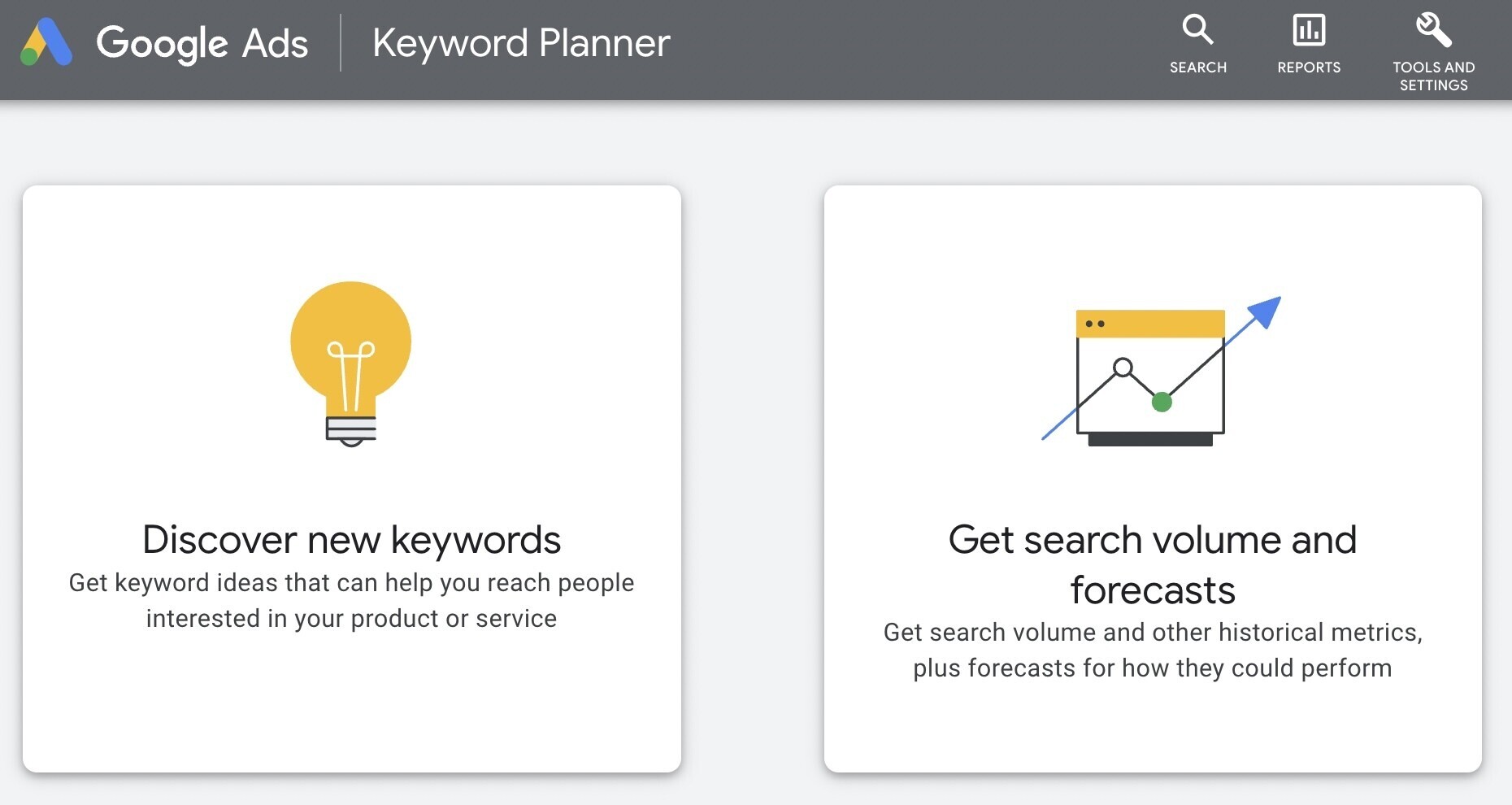
Select “Discover new keywords:”
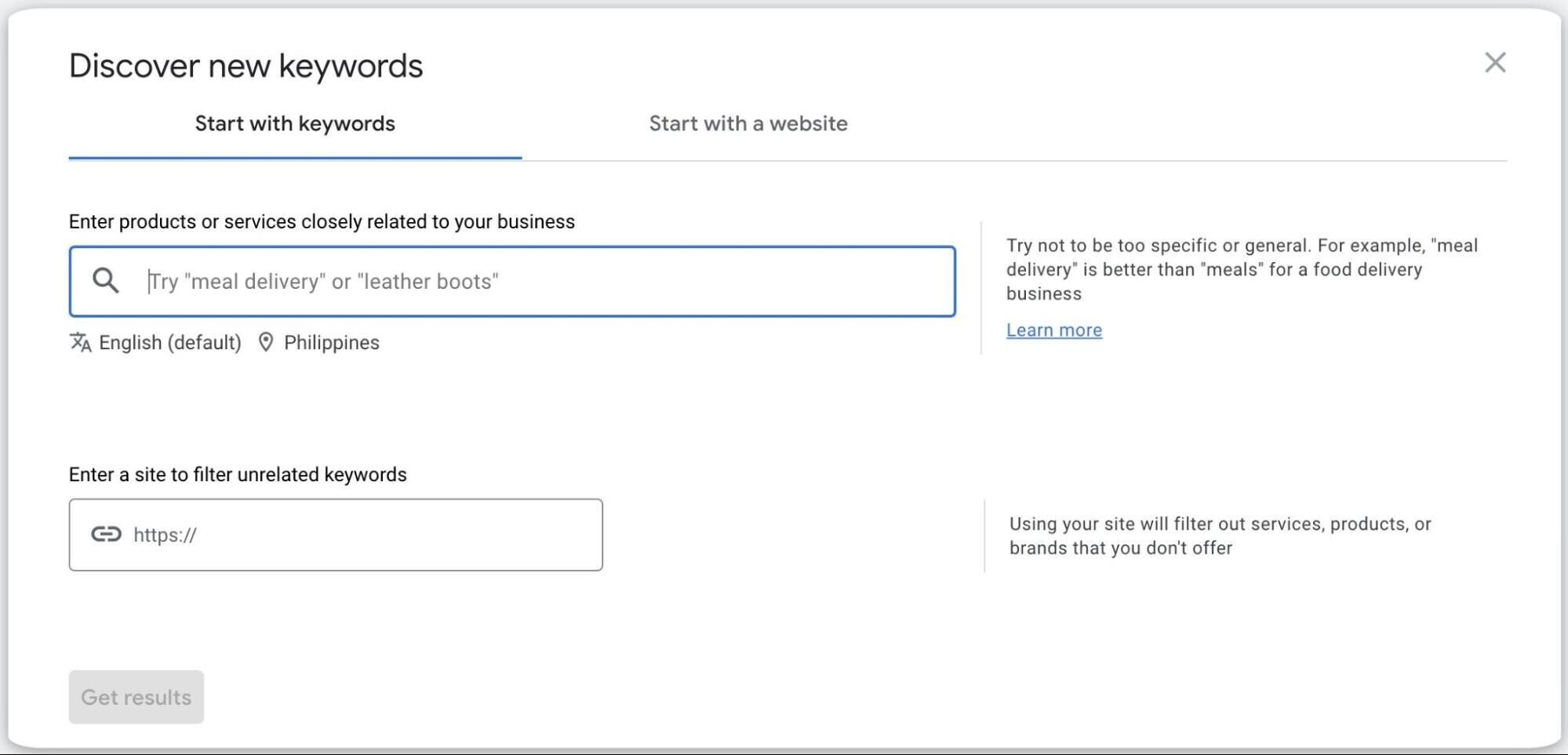
Then, enter a broad “seed keyword” into the field. Google will generate a bunch of related terms:
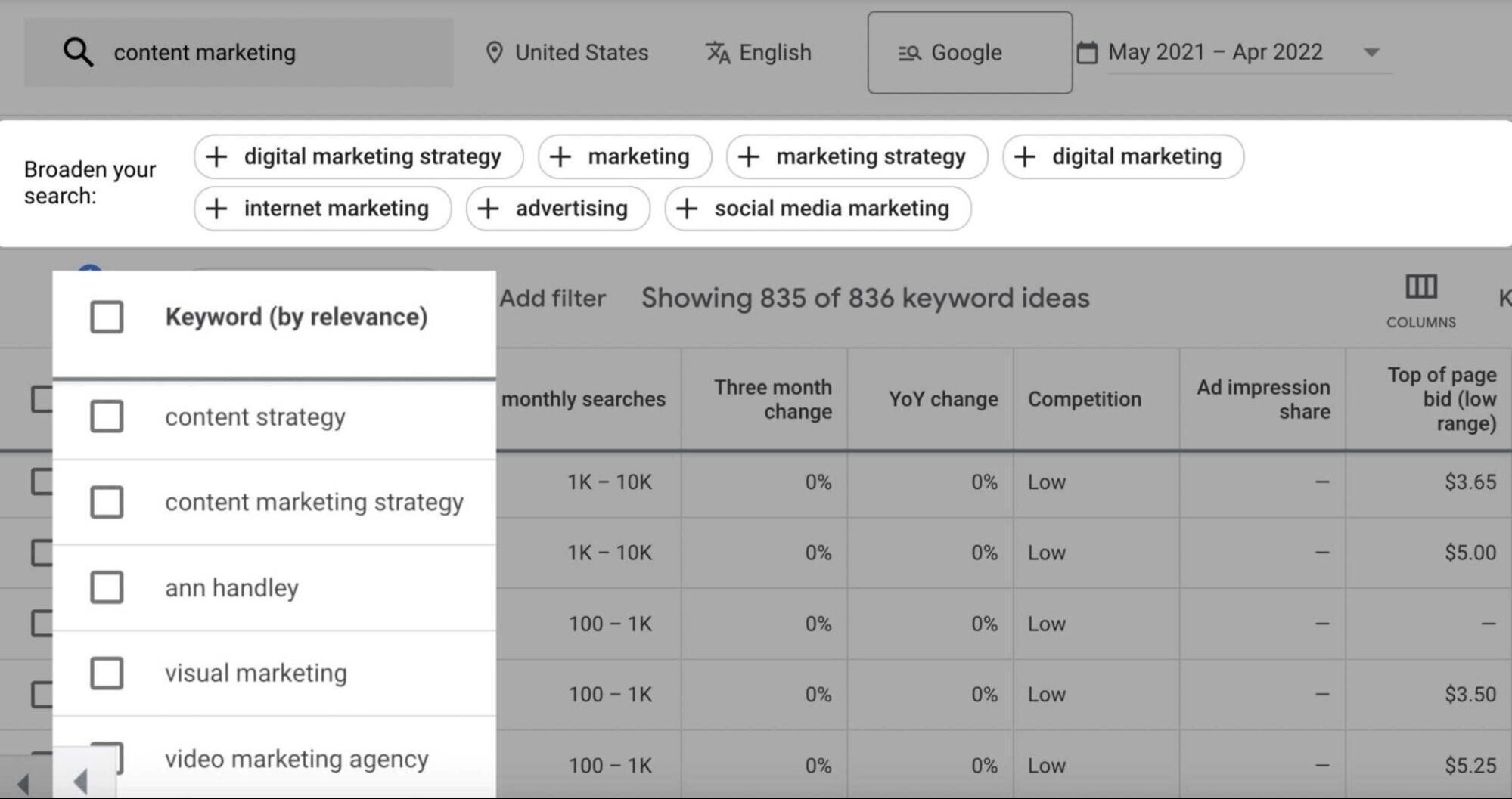
Using Long-Tail Keywords Effectively
Finding long-tail keywords is only half the battle.
Once you have chosen your keywords, you need to use them correctly on your page. This guide to on-page SEO shows you what you need to know about using keywords correctly.
But as a quick primer, here are a few on-page SEO tips that apply specifically to long-tail keywords:
Use Keywords Naturally
Long-tail keywords (like “best SEO tool for SaaS startups”) are sometimes long and clunky. So they’re not always easy to use naturally in a sentence.
You might have to get creative or adjust your keyword a little.
Just make sure you’re not forcing your keyword on your page. Readability and usability always come first.
Place Your Keywords Strategically
Include your long-tail keyword in your page’s title, headers, and subheaders if you can. Use it in your first paragraph, too—preferably in your first sentence.
Consider a User’s Search Intent
Adding your keyword to your page isn’t enough. For your page to rank high in Google, your content needs to match that keyword’s search intent.
Semrush’s Search Intent feature makes it easy to find a keyword’s search intent.
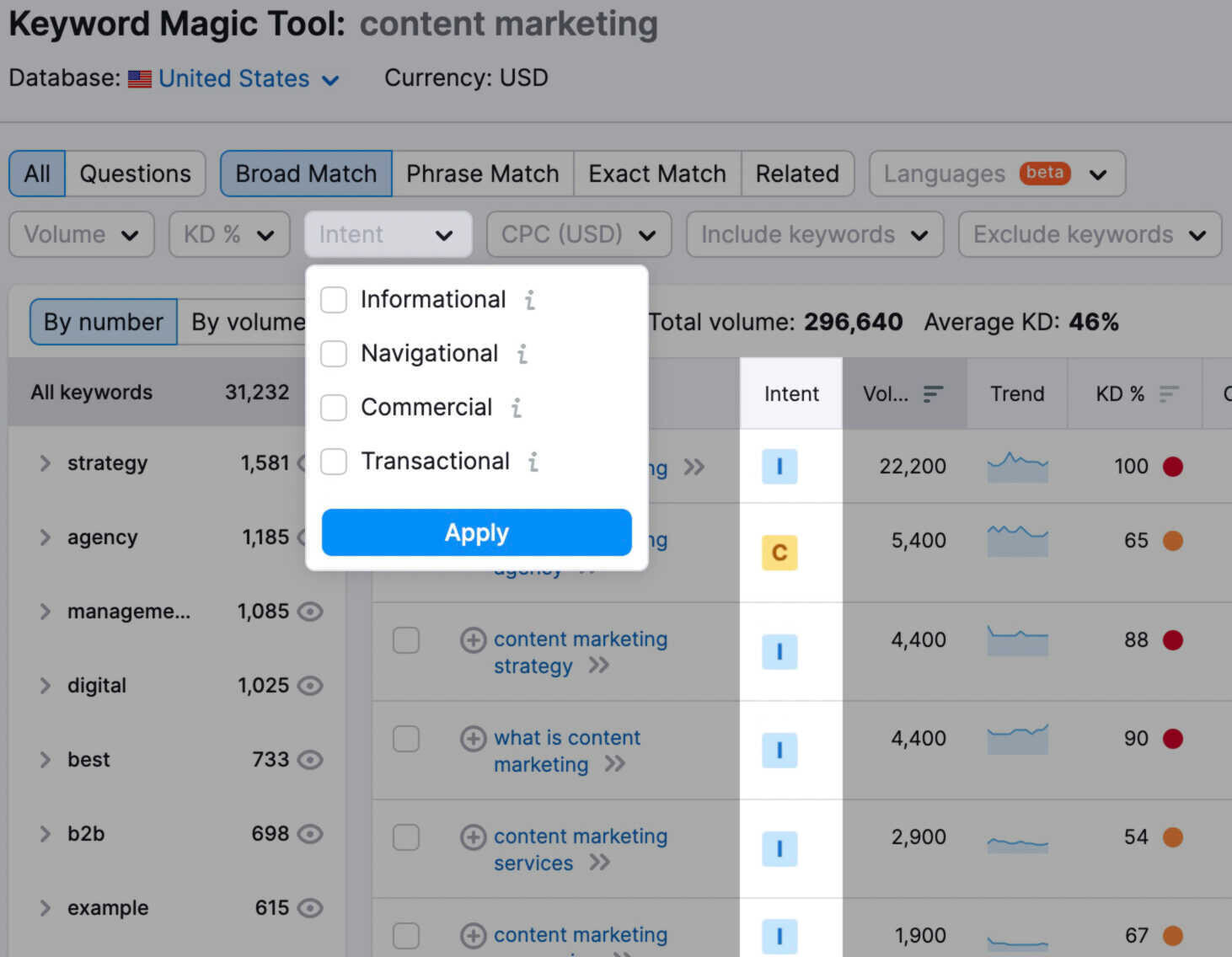
That way, you can create content that gives your reader exactly what they’re looking for.
Conclusion
Keyword research remains the foundation of any successful SEO campaign. And long-tail keywords are ideal for new sites (or sites that don’t have a ton of authority yet).
If you’ve been struggling to rank for your target terms, it may be because those keywords were too competitive. And it might be time to switch your focus to long-tail keywords instead.
Innovative SEO services
SEO is a patience game; no secret there. We`ll work with you to develop a Search strategy focused on producing increased traffic rankings in as early as 3-months.
A proven Allinclusive. SEO services for measuring, executing, and optimizing for Search Engine success. We say what we do and do what we say.
Our company as Semrush Agency Partner has designed a search engine optimization service that is both ethical and result-driven. We use the latest tools, strategies, and trends to help you move up in the search engines for the right keywords to get noticed by the right audience.
Today, you can schedule a Discovery call with us about your company needs.
Source:





![How to Find Low-Competition Keywords with Semrush [Super Easy]](https://new.allinclusive.agency/uploads/images/how-to-find-low-competition-keywords-with-semrush-super-easy.svg)